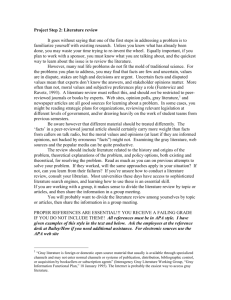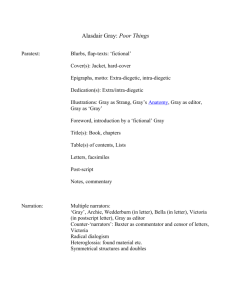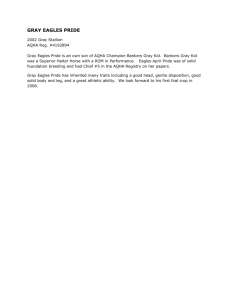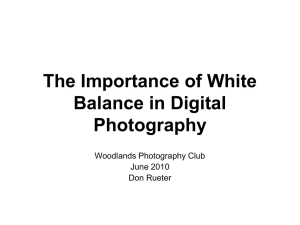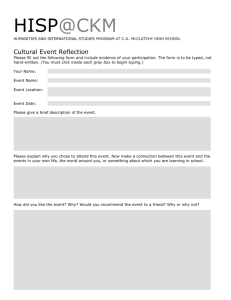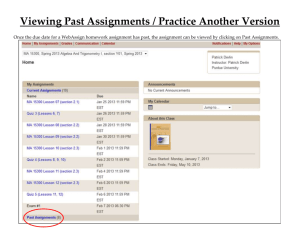digressions of a master strategist
advertisement
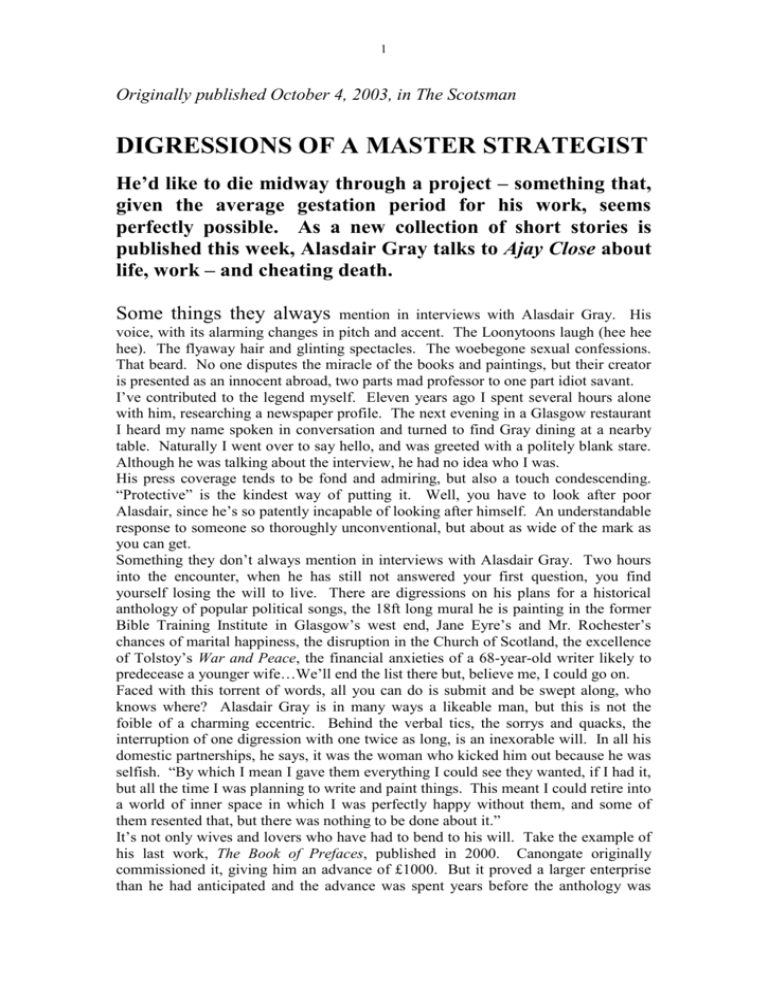
1 Originally published October 4, 2003, in The Scotsman DIGRESSIONS OF A MASTER STRATEGIST He’d like to die midway through a project – something that, given the average gestation period for his work, seems perfectly possible. As a new collection of short stories is published this week, Alasdair Gray talks to Ajay Close about life, work – and cheating death. Some things they always mention in interviews with Alasdair Gray. His voice, with its alarming changes in pitch and accent. The Loonytoons laugh (hee hee hee). The flyaway hair and glinting spectacles. The woebegone sexual confessions. That beard. No one disputes the miracle of the books and paintings, but their creator is presented as an innocent abroad, two parts mad professor to one part idiot savant. I’ve contributed to the legend myself. Eleven years ago I spent several hours alone with him, researching a newspaper profile. The next evening in a Glasgow restaurant I heard my name spoken in conversation and turned to find Gray dining at a nearby table. Naturally I went over to say hello, and was greeted with a politely blank stare. Although he was talking about the interview, he had no idea who I was. His press coverage tends to be fond and admiring, but also a touch condescending. “Protective” is the kindest way of putting it. Well, you have to look after poor Alasdair, since he’s so patently incapable of looking after himself. An understandable response to someone so thoroughly unconventional, but about as wide of the mark as you can get. Something they don’t always mention in interviews with Alasdair Gray. Two hours into the encounter, when he has still not answered your first question, you find yourself losing the will to live. There are digressions on his plans for a historical anthology of popular political songs, the 18ft long mural he is painting in the former Bible Training Institute in Glasgow’s west end, Jane Eyre’s and Mr. Rochester’s chances of marital happiness, the disruption in the Church of Scotland, the excellence of Tolstoy’s War and Peace, the financial anxieties of a 68-year-old writer likely to predecease a younger wife…We’ll end the list there but, believe me, I could go on. Faced with this torrent of words, all you can do is submit and be swept along, who knows where? Alasdair Gray is in many ways a likeable man, but this is not the foible of a charming eccentric. Behind the verbal tics, the sorrys and quacks, the interruption of one digression with one twice as long, is an inexorable will. In all his domestic partnerships, he says, it was the woman who kicked him out because he was selfish. “By which I mean I gave them everything I could see they wanted, if I had it, but all the time I was planning to write and paint things. This meant I could retire into a world of inner space in which I was perfectly happy without them, and some of them resented that, but there was nothing to be done about it.” It’s not only wives and lovers who have had to bend to his will. Take the example of his last work, The Book of Prefaces, published in 2000. Canongate originally commissioned it, giving him an advance of £1000. But it proved a larger enterprise than he had anticipated and the advance was spent years before the anthology was 2 anywhere near completion. He offered it to Bloomsbury, if they paid him a monthly stipend of £1000 with another £600 a month for his secretary, over three years. Then he had to write A History Maker for Canongate because Bloomsbury had gazumped them. Then he “took a holiday” to design a mural, which meant he was a year late with the illustrations for the prefaces. Deciding he needed a patron, he approached the British Council for advice. They referred him to a firm who helped theatre companies with fundraising. Gray was appalled. “I was at the bloody end of it, thinking I’ve to submit an examination. I’ve to write a letter saying, ‘please will you?’ and they’ll ask to see me and I’ll have to explain who I am and what I’ve done and what my project is and what my mission statement is. I thought, the process of applying for patronage is going to stop me working on this bloody book for another five or six months until I get the money.” Instead, he approached a Glasgow publican, Colin Beattie, offering him a portrait in the book (alongside the portraits of his secretaries, research assistants, typesetters etc – Gray is admirably scrupulous that way). In exchange, the writer wanted £7,500 in the form of seven post-dated cheques which could be paid into his bank account at monthly intervals. The request, left in writing at the Lismore Bar on Dumbarton Road, stated, “I’d rather beg from someone I know than from total strangers.” Next day, when Gray and his wife Morag returned from shopping they found seven postdated cheques. “I thought, ‘my God, dear me, how strange’.” Strange? Actually, it seems a rather typical Alasdair Gray story. The impression of chaos. The disregard for the irritating rules by which the rest of the world has to live. The canny circumvention of his own irresponsibility (those post-dated cheques). And the end result: an impossibly ambitious project brought to fruition, with the bonus of two additional works of art. The mad professor turns out to be a master at getting his own way. For which his readers should be thankful. We’re sitting in his huge living room-cum-studio in Glasgow’s west end. A couple comfortably battered armchairs have been drawn up to the ancient, noisy, coal-effect electric fire. On the easel in the bay window sits a plasterboard panel painted the blue of the night sky with a yolk-yellow moon (preparation for the mural). Bewildered by the sheer profusion of detail – the wall of books, Gray’s paintings end-to-end above the picture rail – it is easy to miss the telling fact that this space is highly ordered. Morag is always complaining about him tidying things away. Order and chaos: it’s a recurring theme in Gray’s life and work. Or, perhaps, two sides of the same coin. However prolix he may be in conversation, as a writer he is a paragon of concision. “I rewrite extensively, knowing that the sheer boredom of repetition will force me to find ways of shortening it,” he says cheerfully. To third parties – such as typesetters and assistants he employs – this can seem like eliminating work only to do it all over again; “to me it’s been a necessary path by which you’ve got onto the true path.” With Lanark, the book widely acknowledged as his masterpiece (though he prefers his second, 1982 Janine) the necessary path took 28 years. The Book of Prefaces took him 15 years. His latest short story collection, The Ends of Our Tethers, contains two fictionalised accounts of incidents described to him 30 years ago. His next work of fiction, a trilogy of novellas entitled Men In Love, will (when he gets round to it) be based on television plays he wrote in the 1960s and 1970s. A lesser writer might be suspected of running out of things to say, but with Gray, who knows? A 40-year gestation period is not impossible. 3 There have been times when he felt he’s run out of ideas, when all he could do was tidy things up, answer correspondence, and pay his debts. So far, inspiration – or its close relation, financial exigency – has always pulled him out of the rut. But the hard truth is that working on the sort of timescale Gray seems to prefer is becoming less and less feasible. Earlier this year he fell prey to a general lassitude. He could do what was expected of him as a professor of creative writing at Glasgow University, and write in spurts, but it was increasingly difficult to goad himself into action. He started spending the odd day in bed. Two of his fingers seized up. He was sent to a neurologist who told him he’d suffered a stroke caused by cholesterol in the bloodstream. A few days later he had what he thought was indigestion but what turned out to be an angina attack. The Ends of Our Tethers (to quote its back cover blurb) shows us the high jinks of many folk in the last stages of physical, moral and social decrepitude”. He insists mortality is no more of a preoccupation now than it ever was. Lanark concludes with the eponymous hero as an old man about to die the next day. Bella dies at the end of Poor Things. All the same, it’s hard not to be struck by the image on the front cover of the new book: a naked man with grey hair and Gray’s beard resisting the tug of the two ropes. At the other end of each rope is a death’s head. He’s not afraid of dying, he says. “I’m afraid of pain, I’m very afraid of being hurt, but I don’t think dying necessarily involves pain. Carlisle once said that [he drops into a stentorian voice] ‘nearly everybody will be carried out of this world on a fiery pain chariot’ but actually they’ve got quite good drugs nowadays for that. The only thing that’s depressing about death is if you haven’t had a very full life experience and death cheats you of opportunities you want to have had.” He seems to have very few worries on that front. Artistically, “I’ve been very lucky because I’ve done all the things I’ve wanted to do.” And he reached the apex of his career as a Scot when he became a Professor at Glasgow University. (This is said facetiously, but I get the feeling it’s more than half meant.) When the end does come, he’d like it to be by a stroke. “It seems to be quite a good death.” Both his father and aunt died that way. “The Christians keep saying it but I think they’re quite right: one ought to be continually preparing for dying. It doesn’t seem to me a shocking thing. It does mean you know there’s a limit to your time and the things you can do with it. I would really like to die while I was engaged on a job, actually doing it and therefore leaving it unfinished.” Given his track record, this seems more than likely. Fortunately, all the indications are that his demise is still some way off. After giving up the day job, and losing a stone on his new diet (“no salt or sugar or poultry and greatly reduced alcohol”), he’s been told he may go on for another ten years, or even more. He has a refreshed sense of starting anew, he says, and is now spending 40 hours a week clambering over scaffolding at the former Bible Training Institute, which Colin Beattie is turning into a bar-café-performance space. Gray is justly regarded as a national treasure. He has written comic fiction, science fiction, fantasy, sexual fantasy, Victorian pastiche, plays, poetry, polemic…but whatever genre he tackles, his voice is unmistakable. At once whimsical and serious, deadpan and emotional. No one writes quite like Alasdair Gray. The closest counterpart is probably his artwork, with its distinct forms and clear contrasts and, for all that, its ambiguity. But then, as the man himself says, “I believe we are, at the profoundest level of all, quite unfathomable to each other”. 4

